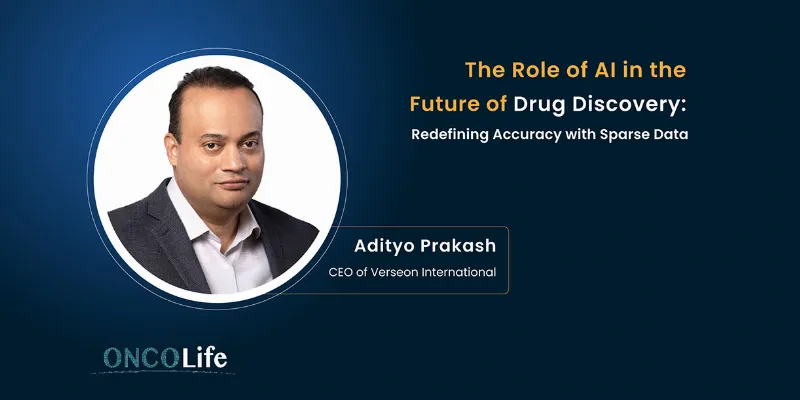Oregon & Lantern Pharma's Strategic AI Collaboration to Enhance Cancer Drug


Digital Health |
6 May 2024
Oregon Therapeutics & Lantern Pharma launch a strategic AI collaboration to optimize XCE853, a novel cancer drug candidate. Demonstrating efficacy in solid and hematological cancers, XCE853 is poised for IND-enabling development. Leveraging Lantern Pharma's AI platform, the partnership aims to enhance the efficacy of XCE853.
Lantern Pharma, a pioneering artificial intelligence (AI) oncology drug discovery and development company, has embarked on a strategic collaboration with Oregon Therapeutics, a French biotechnology firm, to optimize the development of XCE853, a novel protein disulfide isomerase (PDI) inhibitor. With this partnership, two companies announced their goal of using the power of AI to refine and expand the applications of XCE853 in various cancer types, including drug-resistant tumors.
XCE853 represents a promising breakthrough as Oregon Therapeutic’s first-in-class PDI inhibitor, demonstrating potent efficacy in preclinical studies across both solid and hematological cancers. With its readiness to advance to Investigational New Drug (IND) enabling development, XCE853 holds immense potential for transforming cancer treatment.
“Our AI platform, RADR®, can increase the confidence, insights, and comfort levels in developing data-driven development paths by modeling highly complex scenarios at a scale that only has become possible recently. “It’s an ideal approach for Oregon Therapeutics, which has executed a series of highly targeted in vivo and in vitro experiments and is poised to make incredibly important and patient-centric decisions about the clinical future of the molecule," said Panna Sharma, CEO and President of Lantern Pharma, and he noted, "That's where RADR® can play a highly essential and market defining role.”
The collaboration capitalizes on the advanced capabilities of RADR®, Lantern Pharma’s proprietary AI platform. Leveraging over 200 machine learning algorithms, RADR® facilitates the identification of biomarkers and molecular signatures associated with XCE853’s efficacy. This initiative aims to optimize patient selection for clinical trials and explore combination therapies to enhance XCE853’s therapeutic potential.
Notably, PDIs have emerged as promising targets for cancer therapy, particularly in cancers with poor prognosis such as breast and ovarian cancers. Upregulated expression of PDIs is associated with adverse clinical outcomes across various cancer types. PDIs play a pivotal role in cancer cell metabolism, making them attractive targets for therapeutic intervention. XCE853, as a PDI inhibitor, holds promise in inducing cancer cell death by disrupting cellular stress responses—a mechanism known as proteotoxicity.
The collaboration addresses critical challenges in PDI inhibitor development, including the complexity of targeting specific PDI enzymes among the more than 20 variants. By employing computational tools and machine learning algorithms, the partners aim to navigate these challenges effectively, paving the way for XCE853’s clinical advancement.
Dr. Marc-Henry PITTY, CEO of Oregon Therapeutics, expressed optimism about the collaboration's potential to inform future clinical trials and combination therapies. Preclinical studies have indicated XCE853’s efficacy across various cancer types, including ovarian, pancreatic, renal, prostate, lung, breast, and head and neck cancers, as well as leukemia.
According to projections, nearly 612,000 individuals in the US are expected to succumb to cancer in 2024, with drug resistance implicated in 90% of these deaths. Despite the urgent need for effective treatments, no PDI inhibitor has yet entered clinical use. However, with the strategic collaboration between Lantern Pharma and Oregon Therapeutics, powered by RADR®, there is renewed hope for overcoming these obstacles and bringing XCE853 closer to clinical application.
Sandrine Courtès, PhD, the project leader at Oregon Therapeutics, emphasized the significant therapeutic potential of PDI inhibitors across diverse cancer types. “PDIs Inhibitors have a great potential, since this molecular target is highly expressed in several cancer types, supports tumor growth and is associated with clinical outcomes.”
Under the collaboration agreement, Lantern Pharma receives equal ownership and development rights for newly discovered biomarkers and indications related to XCE853. Oregon Therapeutics stands to benefit financially from the out licensing of background IP to Lantern Pharma. Both parties will share additional financial benefits resulting from collaboration IP licensing to third parties.











Comments
No Comments Yet!